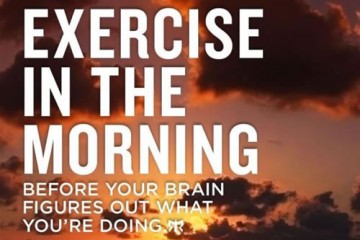Eating Disorders and Teens
Two of the most common types of eating disorders are anorexia and bulimia. Anorexia is identified by an intense fear of becoming fat, and therefore a fear of eating. People with anorexia have a distorted body image. They have such an intense fear of gaining weight that they hardly eat and become dangerously thin, consciously starving themselves out of an illogical fear of becoming heavy. Although anorexics are extremely thin, they will see themselves as fat. Many anorexics will also over exercise and may vomit or use laxatives as a mechanism to control their weight. People with anorexia spend a tremendous amount of time and energy focusing on staying thin. Although anorexics eat very little, much of their attention is on their food. They typically will eat only a small number of “safe” low calorie foods, cut their food into tiny pieces, eat very slowly moving their food around their plate, and cook for others and not eat themselves. Over time anorexia can cause anemia, heart problems, liver and kidney damage, delayed maturation and stunting of growth. Left untreated, anorexics could eventually die.
Bulimia is identified by recurrent binge eating followed by purging. Like the girl with anorexia, the bulimic is unhappy with her body and obsessed with slimming down. She diets and exercises but eventually succumbs to her cravings for food. She binges on food, then feels so guilty that she rids her body of it by self-induced vomiting, or purging. She may also use laxatives and excessive exercise to stay slim. Eventually, this binge-purge cycle becomes her way of maintaining her weight. Bulimics also have a preoccupation with food and weight, have a distorted body image, are anxious about eating (especially in public) and spend a lot of time in the bathroom. Unlike the anorexic, a bulimics weight is typically average, enabling her to hide her condition. Over time bulimia can cause sore throat, eroded tooth enamel, puffy face, indigestion, dehydration, dizziness, muscle weakness and cramps, blurry vision and irregular menstruation. In addition, it takes a toll on vital organs.
Both of these eating disorders are common amongst teenagers It is important for parents to learn to recognize the symptoms of anorexia or bulimia so that assistance can be offered to the teen before it’s too late.
While a majority of cases of teen anorexia or bulimia involve teenage girls, teenage boys are also very susceptible to the pressures of society to be considered handsome. It can be more difficult to spot anorexia or bulimia in boys because their clothes will tend to be baggier, hiding obvious signs of their illness.
One of the best ways to help teenagers avoid an eating disorder is to remember to offer constant reinforcement of the fact that they are okay just the way they are. Compliments and discussions about body image will go a long way in helping teens accept who they are so that they don’t put their health at risk.
Many times an eating disorder will accompany other psychiatric disorders, like depression or anxiety. If a parent thinks that their child may be anorexic or bulimic, the pediatrician should be contacted. Treatment usually includes nutrition counseling, psychotherapy and family counseling. The pediatrician can examine, evaluate and help coordinate care. Much like other disorders, early diagnosis and treatment offers the greatest chance of success.
Once anorexia or bulimia is confirmed, care should be taken by parents not to assign blame or make their child feel at fault. Bulimia and anorexia are eating disorders that can affect members of any class in any part of the world. The child must not feel alienated from their family or social groups. People who know the affected teen should make an extra effort to make the teen feel accepted, welcome, and free from blame.
-
Win the Battle! Conquer Holiday Weight Gain
It’s that time of year again. Soon you’ll be surrounded
-
IS THERE A REALISTIC SOLUTION TO EMOTIONAL OVEREATING? Simple Procedure May Help Melt Away Pounds
Are you overeating because something’s eating you? Are you l
-
Salads
Salads come in all sorts of styles, comb
-
Products Containing Ephedra for Weight Loss
It is no secret there is a lot of controversy that surrounds products
-
Best Ways to Help your Spouse Lose Weight
I have written this article from a wifes perspective, but the same tip
-
5 Treadmill Hacks That Can Help You Shed More Pounds!
For most of us, running
- DON'T MISS
- What Are You Craving?
- Asian Weight Reduction Secrets
- You Snooze You Lose: Use Your Subconscious To Get You Out Of Bed And To The Gym
- Best Tips For To Become Loser In The Fat Reduction Battle!
- Does Lipoxinol Really Work
- Getting The Pounds Off For Good
- Want To Lose Weight? Use These Tips!
- Quick Weight Loss Program – The Top 5 Weight Loss Lies: The Secret 2 Fat Loss
- Ways To Maintain A Healthy Lifestyle
- To Men Who Want To Convince Their Wife To Loose Weight -- But Cant Get Started




